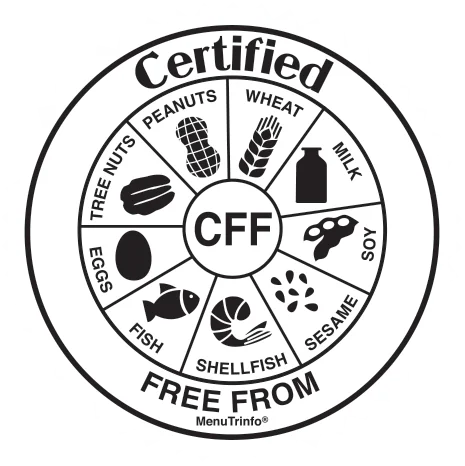"Should I start a gluten-free diet if I do not have a postive diagnosis of celiac disease?"
I get this question a lot. As someone with an intestinal biopsy-confirmed diagnosis of celiac disease, and as the author of an entire book on celiac disease and how to live well with it, I am asked my opinion on this issue at nearly every lecture or class I teach, and usually in several emails a week! There is indeed a lot of confusion on the subject, and though I am not a physician, (and everyone should consult with their own before making a decision on the matter) I do have my own opinon.


For our purposes right now though, what are you to do if you suspect celiac disease? Of course, seek medical advice and testing (while continuing to eat gluten!), but should those fail to turn up answers, it is looking more and more like trying a gluten-free diet (GFD) is the right thing to do anyway.
Confirming what many have found true for themselves, researchers in Italy have now determined that subjects who tested negative for celiac disease by way of intestinal biopsy, but nonetheless maifested symptoms of CD, do indeed benefit by starting a gluten-free diet. For more on this, take a few minutes to watch Dr. Vikki Petersen's video on this research.


This determination was made because researchers were able to identify significant similarities between the substances involved in the metabolisms of celiac positive patients (overt CD) and of patients with celiac symptoms but no biopsy confirmation (potential CD). In fact, both population groups share certain identified immunological abnormalities.
Their results demonstrate that "metabolic alterations may precede the development of small intestinal villous atrophy and provide a further rationale for early institution of GFD in patients with potential CD."
In other words, the researchers found that even if a patient with celiac symptoms tests negative for the actual disease, they may be in a pre-celiac state that would cause them to benefit from a gluten-free diet as well.
You may not, in fact, have celiac disease, but since other research now indicates that as many as 7% of the population (20 million Americans!) have some level of gluten sensitivity, there may be yet another reason that you could experience health benefits by eliminating gluten from your diet. For one reason or another, you may actually feel better without receiving a positive diagnosis of celiac disease and without even taking a pill (shh! don't tell the pharmaceutical companies!). As Dr. Rodney Ford puts it, "If you feel better gluten-free, and get sick/unwell when you eat gluten: then you are gluten sensitive. The diagnosis is made by your own experience (that is made by elimination & challenge)."
No, a gluten-free diet isn't for everyone, and yes, I believe you should be tested if you suspect that you have celiac disease. However, if you don't find any answers, my recommendation is to try a gluten-free diet for yourself. Caution, however: some studies suggest that for the gluten-sensitive who go gluten-free, if they later reintroduce gluten, it can lead to the development of auto-immune diseases.
*Note – after this original posting, Dr. Vikky Petersen wrote on an intriguing link between anti-gliadin antibodies, gluten sensitivity and certain neurological conditions like ADHD. She noted that one study found 80% of kids with ADHD had anti-gliadin antibodies but were not positive for celiac antibodies. A gluten-free diet may nonetheless be indicated. Her article is worth a read, but here's my take:
Studies recognizing the legitimate condition of "gluten sensitivity" help bring options to people who may otherwise feel they have no answers or solutions. The fact that anti-gliadin antibodies can be measured helps bring legitimacy to arguments that a gluten-free diet may help those with autism spectrum disorder, depression, ADHD and even schizophrenia. Gluten-free may not be the answer for everyone, but it's an easy, non-pharmacological option to try before disregarding it as inapplicable simply because you do not have diagnosed celiac disease. I believe we will see far more population groups benefit from a gluten-free diet in the future, as more is learned about anti-gliadin antibodies, gluten sensitivity, and a gluten-free diet.
For more information on celiac disease and gluten sensitivity:
- The University of Maryland Center for Celiac Research (Dr. Alessio Fasano) – Celiac FAQ page –
- IBS Treatment Center (Dr. Stephen Wangen)
- Center for Food Allergies (Dr. Stephen Wangen)
- HealthNowMed (Dr. Vikki Petersen)






















Hi Jules! I wanted to thank you for all of the information and advocacy you provide for those living with Celiac disease and gluten intolerance. Your drive and spirit of service to your fellow Celiac is inspirational. I am so thankful for you and others like you! I was diagnosed with Celiac disease in August of 2010 (so I just recently passed my 1 year gluten-free marker). I went through a lot of struggles during my first 7 or 8 months and under went many GI tests with no resolve. I was so frustrated because my GI specialist was not very helpful beyond the initial diagnosis. My body initially responded well to the diet and I began to see progress. Then I had a setback after about 4 months on the diet and began to become feeling just as sick as before the diagnosis. ALL of my blood work was completely normal again so my doctor said it wasn’t my Celiac causing my symptoms and told me that I would just need to take Imodium or Pepto for the rest of my life to manage my symptoms. I was devastated! BUT I didn’t give up! I began pursuing natural methods of healing and I was introduced to Moss Family Chiropractic and Applied Kinesiology and Chiropractic. I was quite skeptical at first, but what did i have to lose normal medical practices were not helping. I began seeing Dr. Moss in late May of this year and at that time I was experiencing chronic diarrhea. It is now September and my GI symptoms have drastically improved, my energy is through the roof, and I am learning so much about my body and how it is supposed to function. My five year old daughter is also gluten intolerant and has experienced DRASTIC improvements since starting our program with Dr. Moss. My biggest amount of advice that I could give to fellow Celiacs or others on the gluten-free diet…. Find a chiropractor that practices applied kinesiology and his PAK certified (Professional Applied Kinesiology). TRY IT!
Thank you Sarah, for posting this information. I really hope it helps inform others about “outside the box” health solutions that could make a difference in their lives, even after their diagnoses with celiac. Thank you!!!
My friend was following a gluten free diet and feeling great. Then she was told by the doctor she didn’t need to. She stopped her diet and felt horrible so she went back to a gluten free lifestyle and feels great.
I really appreciate the advise. I didn’t know that this test could come back false neg, but it supported the way I felt about mine.
I decided to go gluten-free a few months ago when my doctor told to stop drinking milk for breakfast and I switched to toast in the mornings. I was suddenly extremely sick all the time. My doctor had me go back on a small amount of gluten for a week and then did the blood work. It came out negative, but there wasn’t any stats with it – just pos or neg. When I was back on the gluten, I went back to being sick all the time and even passing out. Therefore, I decided that I didn’t care what the test said and went back to being gluten-free. Now I’m almost never sick!
Plus, my boyfriend did it also to be supportive and he has stopped having migraines.
Great post! They did a blood test and I tested negative. But, then I learned about all the things you just wrote about, so right before Christmas I tried eating completely gluten-free and felt amazing! I’ve cheated here and there now and I do end up feeling miserable. So, I think there’s something there that the doctors/blood tests are not picking up.
Clearly said — you covered a lot of important points in a few words.
I read some articles over a year ago that even though one doesn’t have celiac disease that one might feel a whole lot better if one ate gluten-free, but I didn’t do anything until August of this past year. In late July of 2010 I decided that I needed to lose a few pounds and was on the internet seeking information how to rev up my metabolism as I am 50 and was having a hard time to lose some weight. I accidentally came upon some of these gluten-free websites and started baking things without wheat in them and eating pasta that was made of rice instead of wheat. I was noticed that I was staying fuller longer and slowly each week a few pounds were coming off and todate I have lost 22 pounds and feel great.
I cheated a little over the holidays and had some goodies with wheat in them when I was out and about and not at home where you have access to your gluten-free goodies and I can have those things if I choose as I am do not have celiac disease. However, since I haven’t had wheat since August, I noticed that I had stomach pains and felt the bloated feelings that I was experiencing in my gluten days. That is one of the biggest changes that I notice is the non-bloated feeling I use to have.
I love my new gluten-free living and there is no going back to wheat. I tell everyone I know about this because they all want to know how I lost my weight.
Thanks and cheers to all you gluten-free gals and your wonderful blogs that are there to help us eat healthier and gluten-free.
Gail
Hi Jules
I have crohns disease and have since I was very young. To make a long story shorter I have had 8 surgeries and still had problems. I decided to go gluten free and with in a few days I was not bloated and I was starting to feel better. I stayed on the diet for 5 months be for I told my GI. He was looking at me and he said you sure have been doing good the last few months are you doing anything differant. I said I went on a Gluten free diet and he looked at me and said lets test you but we will probably get a neg since you have been on the diet. I did get a neg but if I eat gluten I get sick right away . I stop eating it and I feel better right away lol. Dr. said he can not give me the formal diagnose but is pretty sure I have celiac . I love your products and your flour is all I use. Love all the info we get from you Thank You Pam
Thanks so much Jules-this was so helpful and reassuring. I’m currently in the process of being tested for Celiac and am being met with a terrible amount of doubt and resistance. When I first mentioned the blood tests for celiac to my doctor, her response was that an endoscopy may need to be done, so if I didn’t want to go through that we probably shouldn’t do the blood tests! Then, after having the blood drawn, the lab “lost” my results and I am having to have the blood work done again. All I know is that I feel better without gluten in my diet, and I’m glad to have some sane guidance on what to do next, even if the tests come back negative!
My gastroenterologist didn’t even consider celiac disease because of my age. I am living GF for about 2 years now, and know I cannot tolerate even a little gluten. I wish I could, but symptoms are almost immediate. Maybe one day I’ll find out if I have CD, but it wouldn’t make any difference in my diet.
Hey Jules, thanks for sharing the new research and your thoughts on this. I couldn’t have said it any better because I have heard of a bunch of people (including myself) who simply feel better on a gluten-free diet.
Might be my personal hard-headedness but I don’t agree that a non-celiac going gluten-free is necessarily counter-productive or bad for you. It is perfectly possible to eat gluten-free AND healthy without increasing the calorie intake.